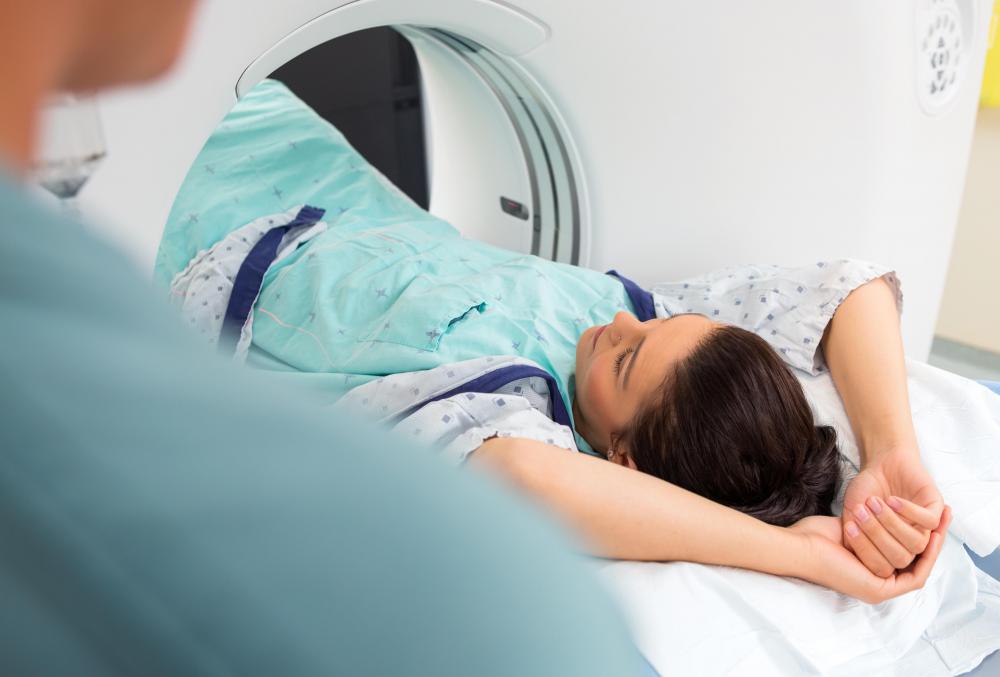At TheHealthBoard, we're committed to delivering accurate, trustworthy information. Our expert-authored content is rigorously fact-checked and sourced from credible authorities. Discover how we uphold the highest standards in providing you with reliable knowledge.
What Is Stomach Cancer?
Stomach cancer, also known as gastric cancer, refers to cancer of the stomach. Sometimes, this type of cancer can spread to other parts of the body. Although the causes of stomach cancer are not fully understood, research suggests that a poor diet may increase a person's risk of developing it. After diagnosis, depending on how far this cancer has spread, there are a few treatment options, including surgery, chemotherapy, and radiation.
The stomach is a major organ in the human digestive tract made up of several layers. It is located under the ribs in the upper part of the abdomen. Although stomach cancer can start in any part of the stomach, it typically begins in the inner lining, known as the mucosa. Cancer in this part of the stomach is often referred to as adenocarcinoma.

When stomach cancer is contained to just one lining of the stomach, it is classified as stage I cancer. Once it spreads to other layers of the stomach, it is classified as stage II. If the cancer spreads to every layer of the stomach, or it has spread into the lymph nodes, it is known as stage III. In stage IV gastric cancer, the cancer has spread to other organs in the body.

After affecting the inner lining, stomach cancer can spread to other parts of the stomach, including the layer of muscle and the outer layer, known as the serosa. Once the cancer begins to spread, it can possibly spread to other organs, especially those close to the stomach. Some of the most common organs to which stomach can spread are the esophagus, intestines, liver, and pancreas.

Doctors aren't sure what causes stomach cancer, but a person's diet may make him more likely to develop it. Some research suggests a link between an excess of salty, smoked, or pickled foods and this type of cancer. Studies also have shown stomach cancer cases have declined since freezing — instead of salting, smoking, or pickling — has become a popular food-preservation method.

Some people also may generally be more at risk for cancer than others. Genetics may play a role, for instance. Individuals who smoke are also generally considered to be more at risk. A history of chronic stomach problems may also make an individual more susceptible to stomach cancer.
Some of the most common symptoms of this cancer include pain, nausea, and weight loss. Individuals with this type of cancer may also notice blood in either their stools or vomit. It is also not uncommon to feel very full even after eating a snack or very small meal.

After noticing these symptoms, it is important to seek medical help as soon as possible. To diagnose stomach cancer, a physician will typically perform a thorough physical examination and, possibly, imaging tests, like x-rays or CT scans. A camera may also be inserted down a patient's throat and into his stomach, which can allow the physician to see into the stomach. If any unusual spots are noticed, a biopsy may be needed to confirm the diagnosis.
When a diagnosis has been made, prompt treatment is usually necessary. Surgery is one option, and this usually involves removing part of or all of the stomach. Removing a small chunk of the stomach is referred to as a subtotal gastrectomy, while removal of the entire stomach is referred to as a total gastrectomy. In the latter case, the esophagus is simply connected to the intestine. Chemotherapy and radiation may also be used.
AS FEATURED ON:
AS FEATURED ON:















Discussion Comments
I had no idea that the removal of the entire stomach was an option for stomach cancer treatment. But then how does the individual digest food? How will the foods be broken down and absorbed when it travels directly to the intestines?
@burcinc-- I'm sorry to hear about your loss. I think that's the biggest risk with stomach cancer. There are many adjacent organs and it can spread easily and quickly. And if the cancer is an invasive type that multiplies fast, then it may be too late by the time that a diagnosis is made.
Smoking was probably the culprit. People think that smoking can only cause lung or mouth cancer but that's not true. It also increases the risk of stomach cancer.
My great uncle recently passed away from stomach cancer. He was over seventy years old but it all happened so quickly that it was quite shocking for the family.
He was fine just a few months before and then suddenly he was hospitalized. They found that he had stomach cancer and the cancer had spread to nearby organs including his liver and intestines. Unfortunately, it was too advanced and had spread too much that doctors didn't feel that chemotherapy or any other treatment would help. He died two months after his diagnosis.
We're not sure what caused it but my mom thinks it was smoking. He was quite a smoker most of his life and still smoked at that age even though everyone warned him not to. He always said nothing will happen to him but it did.
Post your comments